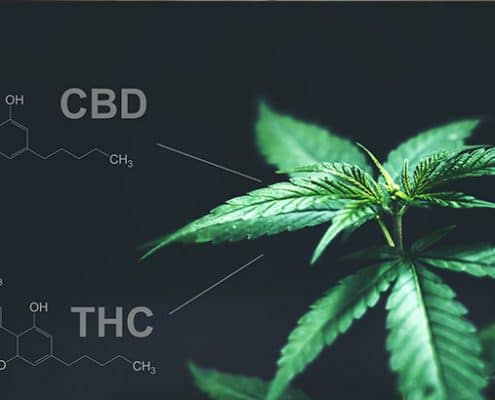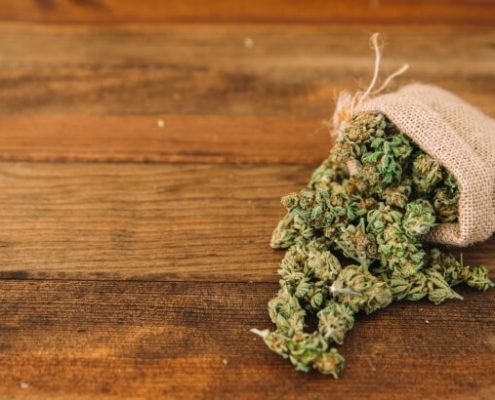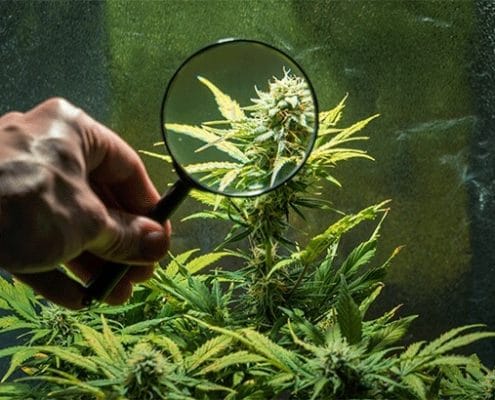What Is Delta-8 THC? 29 Jul, 2021
What Is Delta-8 THC?
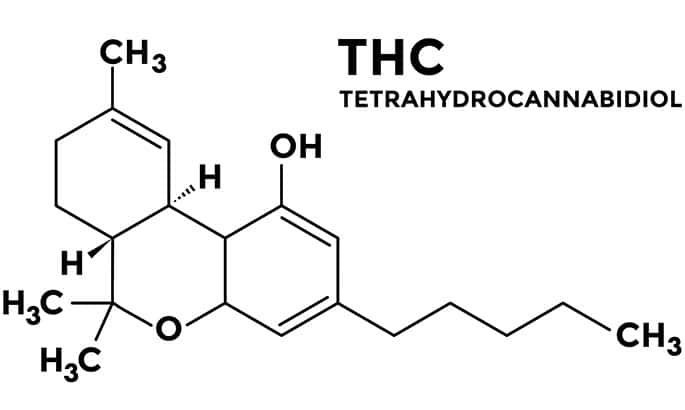
Most people have heard of delta-9 THC, the cannabinoid that’s famously responsible for marijuana’s psychoactive effects. But there’s a new type of THC that’s starting to get a lot of buzz: delta-8 THC. So, what is delta-8 THC and what’s so special about it? How is it different from delta-9 THC and how do you use it? Find out the answers to these questions and more below as we go over everything you need to know about delta-8 THC.
What is Delta-8 THC?
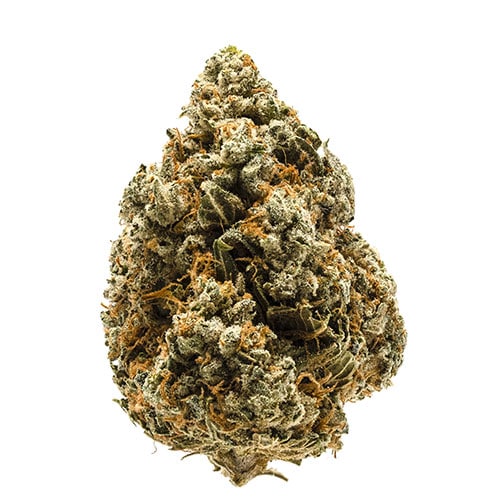
Though this difference in chemical structure may seem tiny, it makes a big impact on how delta-8 THC affects the body’s endocannabinoid system. The bond placement of delta-8 THC gives it a different shape, which appears to affect how it can interact with cannabinoid receptors. Marijuana research is still in its infancy, so we don’t know exactly how delta-8 THC interacts with delta-9 THC. However, cannabis users who have tried both of these forms of THC report some notable differences in effects.
Effects of Delta-8 THC vs. Delta-9 THC
Many people who have tried delta-8 THC say that its effects are similar to the effects of delta-9 THC, but are considerably less intense. Like delta-9, delta-8 THC has psychoactive effects, but they’re more gradual and less likely to be overwhelming. Cannabis users often describe delta-8 THC as being calmer, clearer, or more mellow compared to delta-9 THC.
Studies show that delta-8 THC is less potent compared to delta-9 THC, which could be why people say that delta-8 THC is less intense. A study published in the medical journal Clinical Pharmacology & Therapeutics found that the potency of delta-8 THC to delta-9 THC was 2:3.
When you consider this difference in potency, the fact that many cannabis users describe delta-8 THC using words like “calm” and clear” makes a lot of sense. Cannabis studies increasingly show that THC has a biphasic effect, which means that low and high doses of THC have opposite effects. Optimal doses of THC, which tend to be in the low-to-medium dose range, can create therapeutic effects, such as feeling relaxed or happy. On the other hand, too much THC can have negative side effects, such as increased anxiety or impaired cognition. With that in mind, it seems likely that people who have used delta-8 THC may be taking lower doses of THC, which are more likely to have therapeutic effects.
Though this difference in potency surely impacts user experience, it’s important to point out that there may be other reasons for the different effects of delta-8 THC. Cannabis research is still in its early stages and, while we have data that suggests what different cannabinoids may do, we don’t have as much data on how each cannabinoid works. For example, there are studies that suggest delta-8 THC is up to twice as effective at reducing nausea and vomiting compared to delta-9 THC. Yet, we don’t know exactly why that would be the case. Is delta-8 THC better at reducing nausea and vomiting just because of its potency or is some other factor causing delta-8 to work differently? We’ll have to wait and see what future cannabinoid research reveals.
Why Is Delta-8 THC So Popular Right Now?
Delta-8 THC isn’t new and, while it has a unique effects profile of its own, it’s fairly similar to the THC we’re all already familiar with. So, why, exactly, is everyone suddenly talking about delta-8 THC? What’s the reason for this minor cannabinoid’s sudden popularity?
The reason delta-8 THC is suddenly so popular is its unique legal status. Right now, a certain type of delta-8 THC is legal in more parts of the United States than delta-9 THC. Because of this, delta-8 THC products can be sold in more places, so more companies have been making delta-8 THC products. As you can imagine, delta-8 THC products are particularly popular in places where marijuana isn’t legal, but delta-8 THC is.
Is Delta-8 THC Legal?
The legal status of delta-8 THC in the United States is very complicated at the moment. To explain why, we need to give a quick primer on American cannabis laws and how delta-8 can be sourced or made.
In the United States, different types of cannabis plants have different legal statuses. On the one hand, you have marijuana plants, which are illegal at the federal level, but legal in certain states. On the other hand, you have hemp plants, which are legal at the federal level and in almost all states (but not in Idaho and Mississippi). Legally, the only difference between marijuana plants and hemp plants is delta-9 tetrahydrocannabinol content. According to the 2018 Farm Bill, cannabis plants with 0.3% delta-9 THC or less are classified as hemp plants, while cannabis plants with more than 0.3% delta-9 THC are classified as marijuana plants.
Generally, hemp-derived products will be legal in places where hemp is legal and marijuana-derived products are legal in places when marijuana is legal.
This is where the legality of delta-8 THC gets complicated. Delta-8 THC occurs naturally in marijuana plants in small amounts. However, most of the delta-8 THC sold today has been derived from hemp plants. Cannabidiol, or CBD, is abundant in hemp plants and can be synthesized into delta-8 THC. So, even though it’s a form of THC, delta-8 THC can be a hemp product, putting hemp-derived delta-8 THC in a legal gray area.
Currently, most states define hemp products through the language in federal law, so hemp-derived delta-8 is legal in many parts of the United States. However, some states have local laws that affect the legality of delta-8 in their state. As previously mentioned, Idaho and Mississippi don’t allow any hemp products, so that includes hemp-derived delta-8. Then, New York state just explicitly outlawed delta-8, even though marijuana is now legal in New York. Other states where hemp-derived delta-8 THC is not legal based on local laws (such as laws outlawing synthetic cannabinoids, THC isomers, or tetrahydrocannabinols in general) include Alaska, Arizona, Arkansas, Colorado, Delaware, Iowa, Montana, Rhode Island, and Utah.
Though hemp-derived delta-8 is federally legal based on the federal definitions of hemp and marijuana, this may not be the case for much longer. The federal Drug Enforcement Administration (DEA) recently made a proposed rule that would close this legal loophole and classify delta-8 THC as a Schedule I controlled substance. This proposed rule has not yet been made law and is open for review until October 2021. If that rule becomes law, “all synthetically derived tetrahydrocannabinols,” including delta-8 THC, would be considered controlled substances at the federal level. Until then, the legality of delta-8 THC very much depends on where you are in the United States.
What Are The Different Types of Delta-8 THC Products?
Delta-8 THC products come in many of the same forms as marijuana and CBD products. Some examples of delta-8 THC products include vapes, gummies, tinctures, pre-rolls, and edibles.
Where Can You Buy Delta-8 THC?
If you want to try delta-8 THC, you need to be very careful about where you buy it from. Right now, delta-8 THC products are unregulated, so there’s no oversight or testing required for delta-8 THC products. If you want to make sure what you buy actually contains delta-8 THC, you need to look for products from companies that can provide a certificate of analysis (COA) from a trusted lab. That COA should not only tell you the delta-8 THC content of the product, but also whether or not it contains any contaminants.
One way to make sure you buy a delta-8 THC product that has been tested for cannabinoid content and purity is to shop at a legal dispensary. Delta-8 THC products may not be subject to regulation, but dispensaries are subject to quite a lot of regulation. In most legal states, dispensaries can only carry cannabis products that have been tested at a state-accredited lab.
Of course, not everyone who wants to try delta-8 THC has access to a legal cannabis retailer in their area. If you don’t have access to a reputable legal dispensary, we strongly recommend that you only use delta-8 THC products that have been third party lab-tested for safety and cannabinoid content. Safety is a huge concern with unregulated products, so prioritize protecting your health and only use delta-8 products that have been lab-tested for safety and potency.


